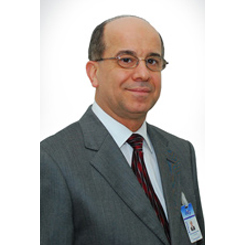Bio
CV
Publications

Three years of experience with prospective randomized effectiveness studies
Natural history and clinical management of central retinal vein occlusion
P17 Comparison of medical record review with prospective data collection in randomized trials
Relationships among suicide ideators, attempters, and multiple attempters in a young-adult sample.
Cluster analysis of MCMI scores of suicidal psychiatric patients: Four personality profiles
Effectiveness of an outpatient intervention targeting suicidal young adults: Preliminary results
A29 A program for large, simple randomized clinical trials—American style
P19 Why do patients accept or decline randomization?
EVALUATION OF FORCED-AIR REWARMING FOLLOWING BYPASS-SURGERY-A RANDOMIZED CLINICAL-TRIAL
Postdischarge Nausea and Vomiting: Another" Big'Little Problem'Following Ambulatory Surgery
Use of the Modified Scale for Suicidal Ideation with suicide ideators and attempters
Help negation after acute suicidal crisis.
Problem-solving appraisal in suicide ideators and attempters
Central vein occlusion study of photocoagulation therapy: Baseline findings
Diagnostic comorbidity in persons with suicidal ideation and behavior.
Central vein occlusion study of photocoagulation: manual of operations
Performance of three tropical hair sheep breeds
Simulation of genetic and environmental interaction of three tropical hair sheep breeds
Linear Logistic Regression Analysis of Tropical Hair Sheep Mortality Data
Mature weights and lean maturing patterns of diverse breedtypes of cattle
Helping Women be a Part of the Answer: Cognitive Interviews to Assess Attitudes on Hormone Therapy
Challenges to online medical education during the COVID-19 pandemic. Cureus. 2020; 12 (7): e8966
Challenges to online medical education during the COVID-19 pandemic, Cureus 12 (7)(2020), e8966
Presentations
Calendar

Announcements

Classes

Community Medicine - Primary Healthcare in the KSA
This course is planned and developed by a cooperative multi-disciplinary partnership of the College of Medicine faculty and the community-based health services providers. The course is responsive to the evolving social and health systems of Saudi Arabia. It serves medical students by providing community-centered learning experiences. Community medicine at Alfaisal College of Medicine is a longitudinal program consisting of several courses. This first course includes field visits to some of the community medical centers. Also, integral to the course is the Community Oriented Research Project, wherein students undertake a field research project that explores relevant community health issues, such as prevalence of disease and illness, factors affecting such illness, and community attitudes to and knowledge of the problems affecting them. In our everyday clinic we start to see patterns and trends: epidemics of heart disease, obesity, depression, substance abuse. Using the tools and basic principles of community medicine/public health and epidemiology, we can take the next step of learning about the factors that lie behind these illnesses and deal appropriately with them. This course is designed to teach students the basic principles of community medicine/public health and confirm what they already know: that, through community involvement, physicians have the knowledge and the opportunity to change our society/communities for the better.
Occupational and Environmental Medicine - COM 237
Occupational and Environmental Medicine is the area of family medicine devoted to prevention and management of occupational and environmental injury, illness, and disability and the promotion of health and productivity of workers, their families and communities. The Kingdom of Saudi Arabia is industrializing rapidly. It is imperative that the primary care and other physicians have a practical working knowledge on the range of occupational hazards in the Kingdom, especially how to recognize, evaluate, treat or prevent them. Many Saudi and expat workers are employed by small or mid-size companies that may not have a full-time occupational physician on site. Thus, the importance of occupational medicine training becomes evident when considering the incidence of work-place induced illnesses and injuries. This course is usually offered in the third or fourth semester, teaching the medical students general and basic principles of Occupational and Environmental Medicine. It consists of 16 weekly lectures of fundamental topics in Occupational and Environmental Medicine. In addition, we usually conduct filed trips and encourage students to participate is filed work to give student exposure to and some experience in this important area of family medicine.

